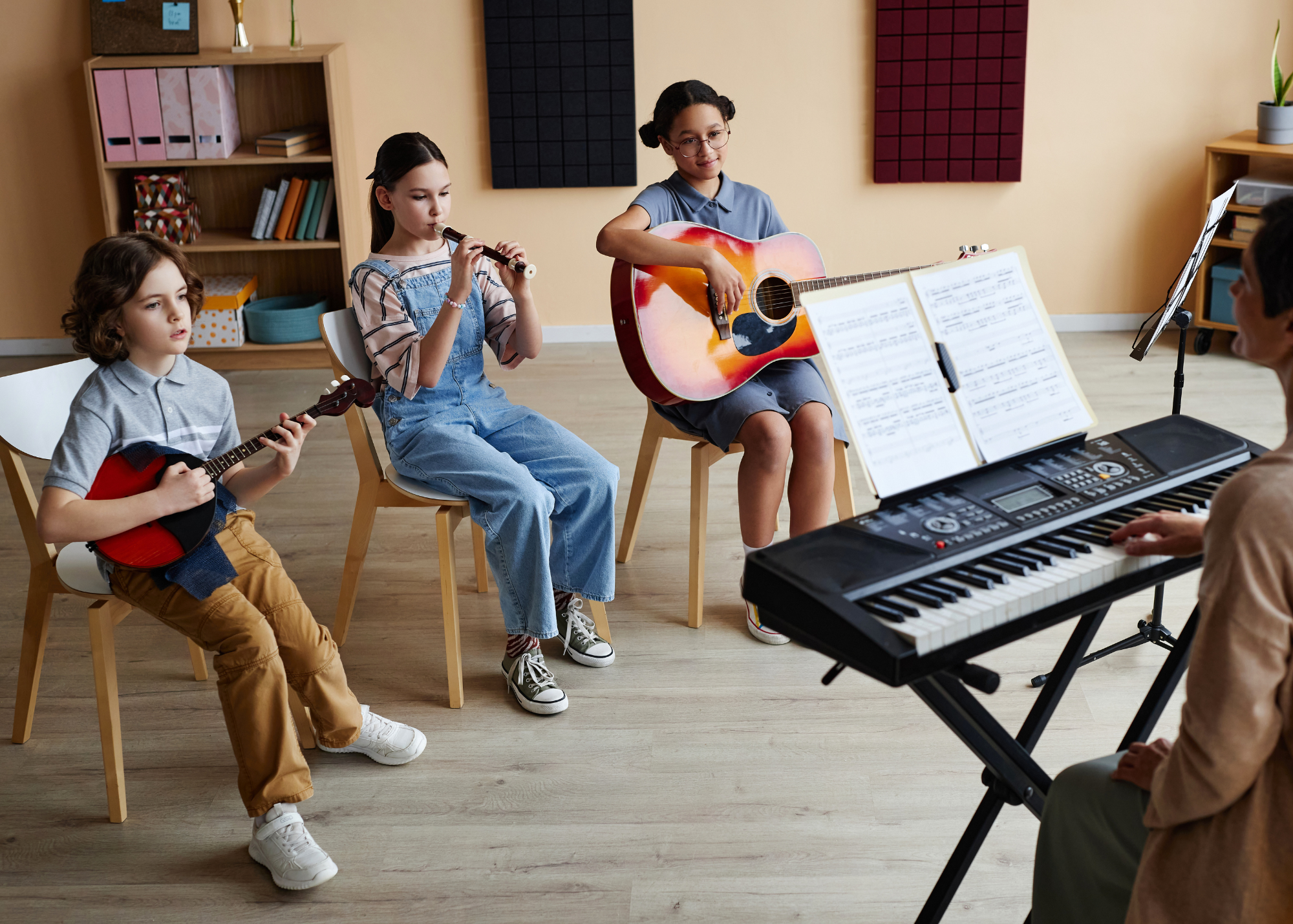“Music is a more potent instrument than any other for education because rhythm and harmony find their way into the inward places of the soul.”
Homeschool Music Ideas
Why Music Matters for Kids: More Than Just a Melody
You know, as homeschooling moms, we often focus on reading, math, science, and faith—and rightly so. But one of the hidden superpowers in education is music. Teaching music to children isn’t just about learning notes or singing songs—it affects the brain, the heart, and the whole person. It gives them tools they’ll use forever.
What Research and Experts Say
Here are some powerful reasons, backed by facts and studies, why introducing music makes a real difference:
Children who study music tend to perform better in school. They get higher grades and improved literacy, and they are 24% more likely to graduate.
Merit School of Music
A USC study found that music education boosts creativity, confidence, emotional stability, and mental health in young people.
USC Today
Students involved in music show better language skills, memory, attention, and reading comprehension.
NFHS
Schools that have music programs see higher attendance rates and graduation rates than those that don’t. For example, in institutions with music, attendance is around 93.3% vs. 84.9% in schools without music. Graduation rates are similarly higher.
Children's Music Workshop
Why These Facts Should Encourage You (Homeschool Mom)
Confidence & perseverance grow: Learning to play something—even just a simple instrument or singing—teaches discipline, patience, and that effort brings results.
Stronger connections: Music is inherently social and emotional. Singing or making music with your kids builds shared memories, closeness, and joy.
Supports other subjects: Listening skills, pattern recognition, memory—all sharpened by music—help in reading, spelling, math.
Mental & emotional health: Especially now, kids are anxious, overstretched, or unfocused. Music offers a peaceful, beautiful channel for feelings and stress release.
Simple Ways to Bring Music Into Your Homeschool (No big plan or expensive gear needed)
Here are some ideas you can try easily this week or month:
Sing-along time
Pick hymns, worship songs, or simple folk tunes and sing with your children while doing chores, driving, or walking. Teach harmony if possible.
Introduce a cheap or free instrument
A ukulele, recorder, keyboard app, or even a homemade drum. Have your child learn one or two songs. Online tutorials make this quite doable.
Listening & Discussion
Choose a “composer of the month” or “song of the week.” Listen together, then talk about what instruments you hear, what makes them feel happy/spooky/sad, and what images the music creates in your imagination.
Use rhythm & pattern games
Clap, stomp, or tap rhythms. Use pots and spoons. Use everyday objects. Math + music = pattern recognition, timing, sequencing.
Write lyrics or poetry set to melody
Encourage kids to write their own short songs or poems and then try to set them to a tune (even if it’s just parody of an existing melody).
Incorporate music into your subjects
History: explore music from eras you study.
Science: explore sound, vibration, acoustics.
Faith: memorize scripture through song; sing about themes you’re teaching.
Your Music-Start Checklist
Here’s a quick plan you can use to start weaving music in:
Start with a small commitment. Just try scheduling 10 minutes, 2–3 times a week for music listening or singing.
Pick one simple instrument—a keyboard app, recorder, ukulele, or even rhythm instruments like tambourines or shakers.
Each week/month, pick one piece of music to explore (history, listening, discussion). Focus on a composer or song to spotlight.
Involve parents, older siblings, etc. join in—listen together, sing together—makes it joyful and shared.
Keep it fun and low pressure. There is no need for perfection. Missed days are okay. Celebrate small successes.
Final Thoughts
Music isn't just an extra; it’s a gift you give your children that affects their mind, soul, and character. It teaches things you can’t always measure: wonder, beauty, resilience. Even if you add just a little—one song, one listening session—it plants seeds of creativity, confidence, and connection.
You don't need to be a music teacher to give this gift. You just need space, openness, and a little joy. Let music be a thread woven into your homeschooling rhythm—not another heavy thing on your to-do list.
You got this.
“Tell me, I forget; Show me, I remember; Involve me, I understand.” — Carl Orff
〰️
“Tell me, I forget; Show me, I remember; Involve me, I understand.” — Carl Orff 〰️
Here are some music resources we’ve used or I’m hoping to try this year! Let me know if you have things you’ve used for teaching music that has worked well.

